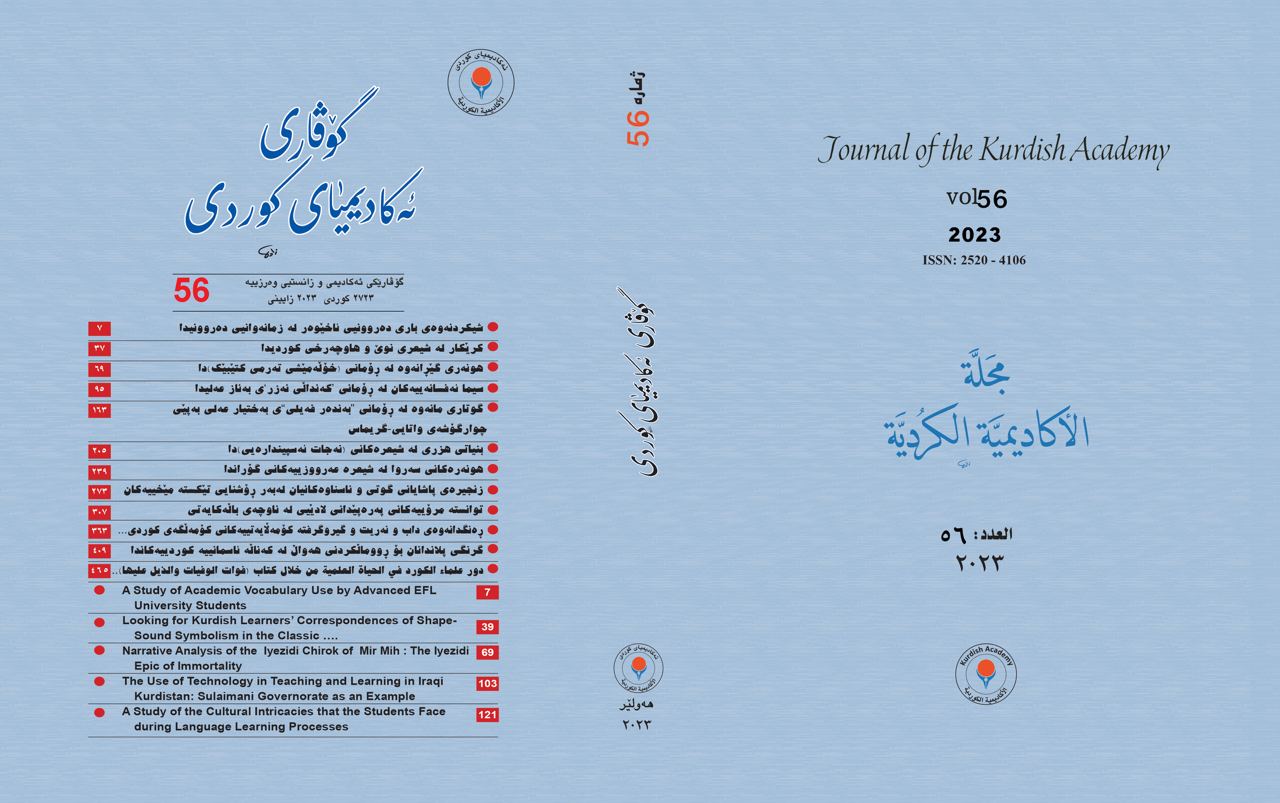The discourse of survival in "Bandar Fili” by Bakhtiar Ali, according to the semantic square of Greimas
DOI:
https://doi.org/10.56422/ka..56.135Abstract
The (Semantic square) is a typical method for text analysis, which Greimas established it on the basis of an opposite dualism; in which the semantic meanings are not only formed through their relationships and communications, but also through opposite dualisms that lead to new growing relationships towards malty dualisms. The dualism of ‘the free’ / ‘the prisoner’ in (Bandar Faili) novel, established a semantic world, and the dualism here is the basis for new semantic relations, as a discourse is generated from these new relations under the title of the “discourse of survival”, and some of the characteristics of this discourse, is been harmony with the reality in order to survive, long life is preferred, indifferent to the quality of this life. The protagonist of the novel, ‘Bandar’, has a dual personality: he is a free prisoner and a prisoner free. He is alive through Ventilator and laying in the bed. The protagonist of the novel, who is a small kid, reflects a historical chain of semantics, corresponding to the Baath regime and its ideology. This duality has a long history of conflict. The semantics of this meaning emerge from that history. The hero comes into existence in the midst of this history, unaware of its components; His father is a Baathist man and his mother is a Faili Kurdish woman. There are many indications of contradiction, opposition, and overlapping within the plot and structure of the novel; The square of meaning according to Griemas focuses on these relationships. And his theory is a mixture of formalist and structuralist perceptions that resulted in the narration semiology.





